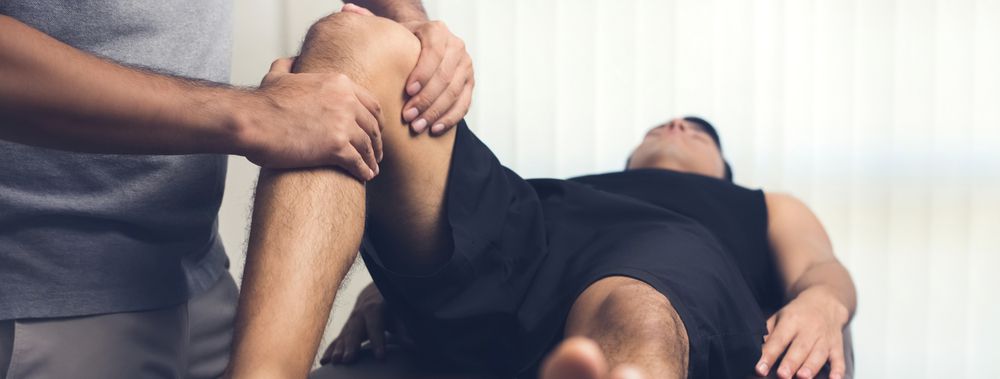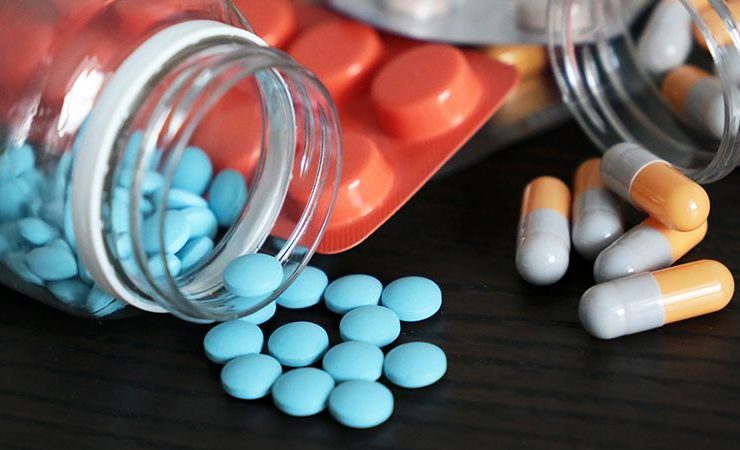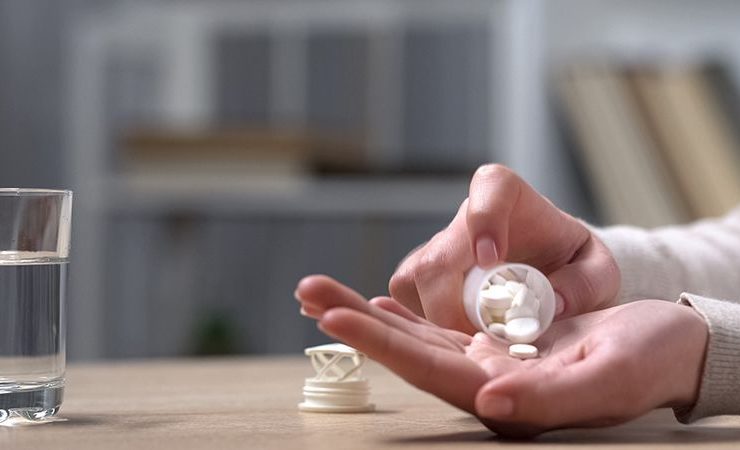Prescription Drug Addiction: How to Prevent a Relapse
The battle against prescription drug addiction is not an easy one, so we understand why you want to know how to prevent a relapse. However, you need to understand that preventing addiction relapse is not a single battle. You won’t win just once, and that will be the end of it — it’s a battle you have to keep winning to ensure long-term sobriety.
Prescription drug addiction is as real as all other forms of addiction. The problem is, you may not even realize that you’re addicted to a prescription drug. Why? Because prescription drugs are given to you for a health condition. So while you’re steadily getting addicted to the prescription drug, you’re under the illusion that you’re still sick and you need the drugs.
If you’re a prescription drug addict, the best bet for you is to seek professional help. If you’ve already undergone treatment for prescription drug addiction, that’s awesome! We have some tips for you on how to avoid a prescription drug addiction relapse. But first, let’s establish a firm understanding of drug addiction relapse.
Understanding Prescription Drug Addiction Relapse and its Three Stages
It is essential to understand the entire process of relapsing after addiction treatment. You probably believe that a relapse just happens sometime after the recovery, and the addicts are often unable to explain it. It doesn’t “just happen”; it happens in stages. To know how to avoid a prescription drug addiction relapse, you need to understand these stages.
Emotional Relapse

This is the first stage in the relapse process. It usually occurs when you remember a previous relapse or failure. At this stage, you start thinking that you don’t want to repeat it; you don’t want to fall back into it. So, you try to push it out of your mind.
However, that’s a problem. See, while you’re trying not to think about it, your emotions and the resulting actions are laying the foundation for another relapse. You’re not planning to relapse, so you deny the thoughts of a relapse. This can be risky.
This level of denial is risky because it will prevent you from taking adequate steps to prevent the progression of a relapse. The relapse is already in motion, but you don’t realize it. You must identify the early stages of emotional relapse and take action before it progresses. It will be easier for you to prevent a prescription drug addiction relapse if you’re able to take action at this stage.
Mental Relapse
This the second stage of the relapse process. This is often the stage where many people realize they are about to relapse. During this stage, you will find yourself in the middle of an internal struggle. You may have a strong desire to start consuming prescription drugs again, but you don’t want to. So there’s a struggle between the urge to retake the drugs and your desire to abstain from it.
You start craving the drugs. You may even feel sick (but you’re not ill, it’s just your mind playing tricks on you). You start reminiscing about people, places and feelings associated with using drugs in the past. For some people, they begin to justify why the need to use these drugs, usually by highlighting the positives and downplaying the negatives.
The highlight of this stage is when you begin to plan methods of taking prescription drugs while maintaining control. You’re giving every excuse available to start retaking the drugs. At this stage, you need to seek professional help for drug addiction treatment in Vancouver.
Physical Relapse

This is the final stage of the relapse process. Here, you resume the use of prescription drugs again. Usually, you can control the use of the substance at first, but as time progresses, it will get difficult, and you may eventually lose yourself to it.
At this stage, you’ve already fallen back into prescription drug addiction, and you no longer need tips on how to prevent a relapse. What you need now is a treatment for prescription drug addiction. So, it will be best if you started your treatment all over again.
Causes of Drug Addiction Relapse
In your efforts to abstain from prescription drug abuse, you must understand the factors that may trigger your urges. Knowing these factors will help you a lot in your efforts to avoid a relapse.
Here we’re going to look at some of the factors you need to look out for, as you try to avoid a prescription drug addiction relapse.
Stress
Stress is the primary cause of relapse. We all experience stress at some points in our lives. It is entirely normal, but it becomes an issue when you start using your old habits to relieve stress. Many people struggling with addiction to prescription drugs often find themselves running back to those drugs when they get stressed out.
Stress is not a good thing. We all always look for ways to relieve some stress. However, prescription drug abuse should not be one of those ways. Whenever you get stressed out, you shouldn’t go running to those prescription drugs for quick relief.
Physical Triggers
These are places, people, objects, subjects and activities that trigger the urge to consume prescription drugs. These physical triggers will remind you of your addiction. They will remind you how much you enjoy taking those drugs and the instant gratification you derive from it.
These physical triggers are very dangerous and must be avoided by all means possible. This is because they often trigger the relapse from the second “mental” stage. At that stage, it becomes more challenging to prevent a prescription drug addiction relapse.
Negative Emotions
Negative emotions such as guilt, anger and sadness are dangerous for anyone trying to recover from prescription drug addiction. Fear is the king of all these emotions. It is the biggest trigger. Because you’re afraid and you feel helpless, you get the urge to take the prescription drug to help you forget your fear.
Whatever happens, no matter how you feel, try your best not to rely on prescription drugs to eliminate your negative emotions. The basic rule of preventing a relapse of prescription drug addiction is to avoid negative emotions. And even if you do have them, try the following healthy distractions:
- Yoga
- Exercise
- New hobbies
- Meditation
- Mindfulness
Overconfidence
They say overconfidence precedes carelessness. This is true in this case. Overconfidence in your desire or ability not to go back into prescription drug addiction will blind you when relapse kicks in. The early emotional relapse stage thrives on denial and overconfidence.
When the thoughts of going back to using the prescription drugs again come in, overconfidence will help you discard the ideas. However, it will also prevent you from taking further actions to prevent the emotional stage of prescription drug addiction relapse.
Related article: Things to Know About Quitting Opioids | Drug addiction
Prescription Drug Addiction: How to Prevent a Relapse
Congratulations on winning your battle against prescription drug addiction. However, the war is far from over as there will be times when you will feel like going back. So we’ve provided some tips on how to prevent a prescription drug addiction relapse.
Set achievable goals and reward yourself accordingly.
This works every time, regardless of the type of addiction you’re dealing with. Setting achievable goals and milestones is a significant step in your efforts to win against your addiction. These goals can be daily, weekly, monthly, yearly or all of them.
Also, try to always reward yourself for the achievement of any and every goal you set for yourself. Doing that will make the whole journey much more exciting and fulfilling.
Avoid physical and emotional triggers.
We can’t emphasize this enough. Physical and emotional triggers are often the culprits in most cases of relapse. They often remind you of how much you enjoy using those prescription drugs. They remind you of the “fun” you had, and all the other things you miss from the days of using prescription drugs. You can’t afford to fall for those tricks.
Try your possible best to avoid all the things that remind you of the gratification you got from your addiction to prescription drugs. Replace these things with new activities and healthier hobbies. Try working out — a strong body is a healthy mind. Read motivational books and fill your time with healthy activities.
Join a support group.
Almost all addicts who were able to get over their addiction had support. You’re not alone in this, so, why should you fight alone? Join a support group where you can share your experiences and receive valuable support.
Seek professional help.

Nothing beats professional help and treatment. If you catch yourself slipping away, don’t be afraid to reach out to a therapist or any other professional. It’s their job to save you from drowning in your addiction again.
Whatever may be happening, don’t hide away; try to get prescription drug addiction treatment in Vancouver. Seeking professional help early helps prevent a lot of damage.
Conclusion
You don’t have to suffer any more setbacks even after recovering from your addiction. Now you understand the various stages and causes of a relapse. Together with the tips we discussed on how to prevent a prescription drug addiction relapse, you have all the information you need.
However, if you feel overpowered or you need further help, remember to check out addiction treatment services close to you. There’s no shame in asking for help; let the professionals assist you with your efforts. Call Inspire Change Drug Rehab in Vancouver for addiction treatment programs. More importantly, these addiction treatment services will be tailor-made to your unique situation. Contact us today!



